MercoPress. South Atlantic News Agency
Economy
-
Thursday, October 8th 2009 - 11:14 UTC
All time US budget deficit record in 2009, equivalent to 9.9% of GDP

The US budget deficit more than tripled to a record 1.4 trillion US dollars in the fiscal year to 30 September, according to US Congress estimates. Congressional analysts had previously predicted a deficit of 1.6 trillion but revised their latest estimate, which comes after the end of the fiscal year.
-
Thursday, October 8th 2009 - 07:16 UTC
Chile slaps 15% safeguard on Argentine, Uruguayan milk and cheese imports
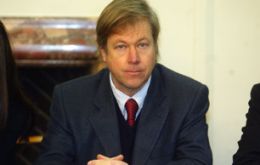
Chilean dairy farmers on Wednesday expressed satisfaction with the government’s decision to impose safeguards on powder milk (whole and skinned) and Gouda cheese from Argentina and Uruguay.
-
Thursday, October 8th 2009 - 03:26 UTC
Spanish Central bank warns about bulging budget deficit and unemployment
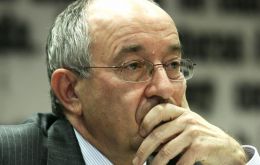
Controversy sparked between Spain’s government and the governor of the Central Bank over the magnitude of the budget deficit and rising unemployment which threatens loans and consumers’ repayments plus the stability of some Spanish banks.
-
Thursday, October 8th 2009 - 03:21 UTC
Santander Brazil successfully completes biggest share offering

The Brazilian unit of Spanish banking giant Santander has raised 14.1 billion Reais, approximately 8.1 billion US dollars) in the country's biggest share offering.
-
Thursday, October 8th 2009 - 02:26 UTC
Carrefour denies considering exiting Latinamerican “lucrative markets”

French retailer Carrefour is seriously considering exiting Latin America, one of its most lucrative markets, under pressure from top shareholders, Le Monde newspaper reported in a preview of its Thursday edition.
-
Thursday, October 8th 2009 - 02:22 UTC
Argentina discussing details of IMF technical mission visit to the country
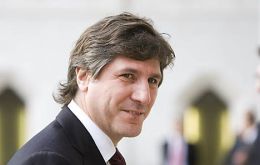
Following his forty minutes Tuesday meeting with IMF head Dominique Strauss-Kahn, Argentine Economy Minister Amado Boudou said that ”the new relationship (Argentina is) building with the IMF is purely technical and numbers-related, but by no means does it mean an interference with Argentine policy.”
-
Thursday, October 8th 2009 - 02:19 UTC
Prospects of another record grains crop for Brazil: 141.1 million tons

Brazil expects the coming 2009/2010 grains crop to reach 141.1 million tons, which represents an increase in the range of 2.9% to 4.8% over the 2008/09 record harvest of 135.16 million tons, according to the country’s National Supply Corportion, Conab.
-
Wednesday, October 7th 2009 - 09:59 UTC
Uruguayan economy set to grow 0.6% this year and 3.5% in 2010, says IMF
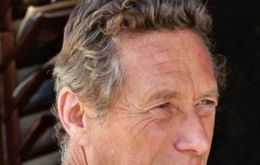
Uruguay’s economy is set to grow 0.6% this year and 3.5% in 2010 according to the latest estimates from the International Monetary Fund. This means Uruguay together with Peru will be the only two countries in South America that will expand in 2009. The previous IMF forecast was 1.3% and 2%.
-
Wednesday, October 7th 2009 - 05:42 UTC
Australia breaks G20 monetary trend and raises main interest to 3.25%

Australia has raised its main interest rate to 3.25% from 3%, becoming the first G20 nation to do so as the global economy begins to recover. The move by its central bank was not unexpected as the Australian economy was the only one in the developed world to expand in the first half of 2009.
-
Wednesday, October 7th 2009 - 05:38 UTC
France and Arab countries deny ditching the US dollar in oil market
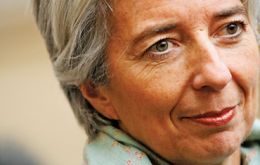
France dismissed on Tuesday as “speculation” a British newspaper report that it was in secret talks with Gulf Arab states, Russia, China and Japan to replace the US dollar with a basket of currencies in trading oil.
